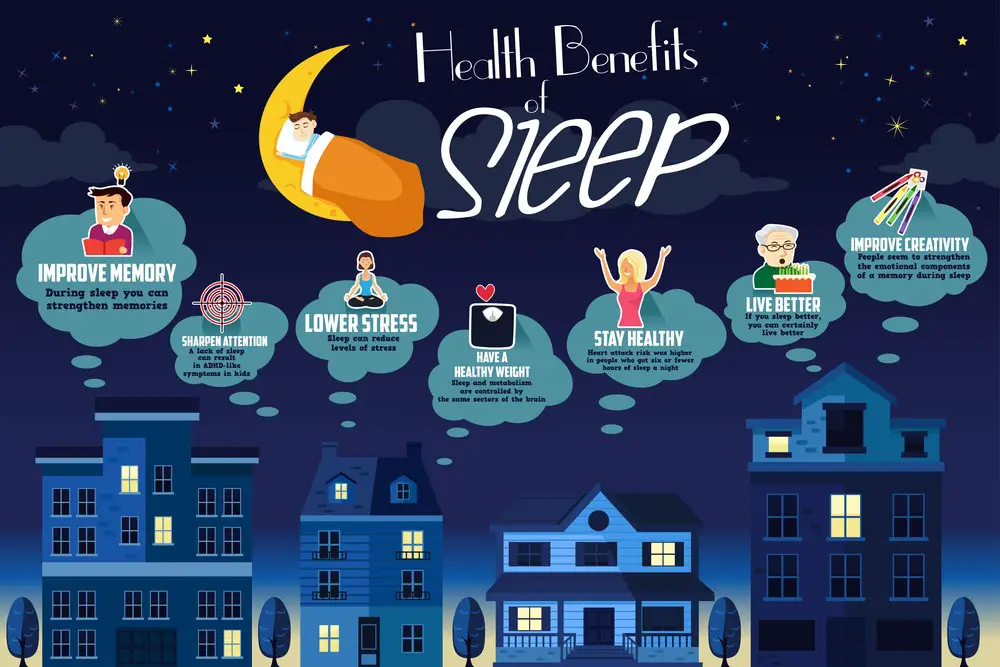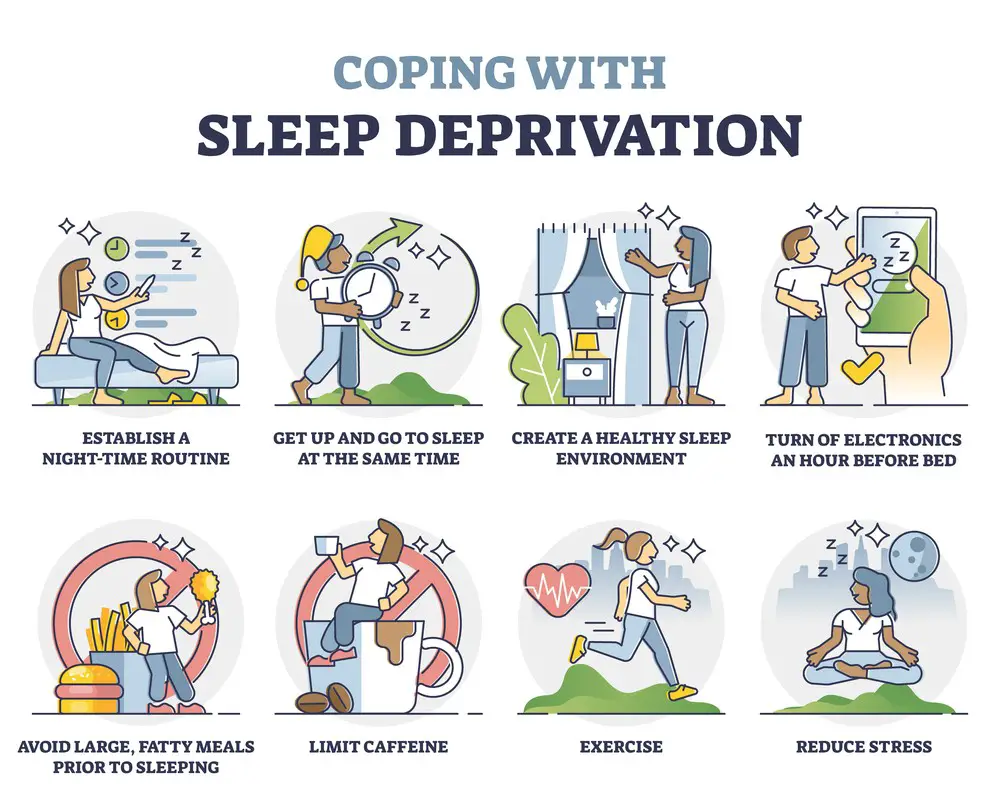As a BetterHelp affiliate, we receive compensation from BetterHelp if you purchase products or services through the links provided
This post was developed via a partnership with BetterHelp.
Getting enough sleep is one of the most important things you can do for your mental and physical health. Adequate sleep is considered an essential part of self-care, and too little sleep or low sleep quality can make it harder to survive and thrive. While almost everyone experiences an occasional sleep disturbance, frequent or long-term sleep problems may result in several mental or physical health effects. This article will discuss what sleep disorders are and why getting enough sleep is so important to your overall well-being.
What are sleep disorders?
Sleep disorders, sometimes called sleep-wake disorders, are anything that interferes with the timing, quality, and amount of sleep a person gets. Many sleep disorders appear alongside other medical or mental health conditions, such as depression or anxiety. Some common sleep disorders are listed below:
- Insomnia is by far the most common sleep disorder, experienced by one-third of adults at some point in their lives. It involves problems falling asleep or staying asleep. A diagnosis of insomnia requires that sleep difficulties occur for at least three nights per week for at least three months and cause significant distress during daily life.
- Sleep apnea. Sleep apnea sleep disturbances are caused by breathing interruptions during sleep, significantly disturbing sleep quality. Sleep apnea requires medical intervention and is often treated through lifestyle changes, custom-fit mouthpieces, or continuous positive airway pressure (CPAP).
- Non-rapid eye movement sleep arousal disorders. This category of sleep disorder involves incomplete awakening from sleep, often accompanied by sleepwalking or sleep terrors.
- Rapid eye movement sleep behavior disorder. This category of sleep disorder involves incomplete suppression of the body’s motor system during sleep. A person might act out responses to events in a dream and may speak loudly when dreaming.
- Hypersomnolence disorder. Hypersomnolence involves excessive sleepiness throughout the day, even when the person has gotten at least seven hours of sleep.
- Circadian rhythm disorders. Circadian rhythm disorders occur when a person’s internal body clock becomes misaligned with the external light-dark cycle. They may struggle to fall asleep until late at night and feel excessively tired during the day.
The sleep disorders above are not a complete list. Sleep can be disrupted in other ways, such as chronic pain or an acute injury. A sleep disorder is likely present when long-term sleep disturbances become apparent, regardless of the cause. Sleep disorders are commonly diagnosed alongside other medical or mental health conditions.
What happens when someone doesn’t get adequate sleep?
 Evidence from empirical studies suggests that chronically poor sleep can cause wide-ranging adverse effects on mental and physical health. It impacts the cardiovascular, endocrine, immune, and nervous systems. Low-quality sleep is also associated with an increased risk for obesity, diabetes, cardiovascular disease, and substance use. Some studies suggest that all-cause mortality – the likelihood of death from any cause – is significantly increased in those with sleep disorders.
Evidence from empirical studies suggests that chronically poor sleep can cause wide-ranging adverse effects on mental and physical health. It impacts the cardiovascular, endocrine, immune, and nervous systems. Low-quality sleep is also associated with an increased risk for obesity, diabetes, cardiovascular disease, and substance use. Some studies suggest that all-cause mortality – the likelihood of death from any cause – is significantly increased in those with sleep disorders.
Low sleep also causes significant mental health impacts. Chronic sleep disturbances are associated with an increased risk of developing a mood disorder, reduced stress resilience, poorer memory, and slower cognitive performance. It is important to note that sleep disturbances commonly occur alongside mental or physical health issues, sometimes resulting in compounding effects that make it more challenging to treat the underlying condition.
Managing sleep disturbances
 If you have trouble falling asleep, staying asleep, or don’t feel rested no matter how much sleep you get, reaching out to a medical professional is likely worthwhile. A medical provider can help rule out possible underlying causes of your sleep concerns and can likely provide a referral to a mental health professional if no underlying medical cause is found. A therapist or other professional can utilize cognitive behavioral therapy or other techniques to help improve your sleep quality. For more information on treating sleep disorders through therapy, check out this article from BetterHelp:
If you have trouble falling asleep, staying asleep, or don’t feel rested no matter how much sleep you get, reaching out to a medical professional is likely worthwhile. A medical provider can help rule out possible underlying causes of your sleep concerns and can likely provide a referral to a mental health professional if no underlying medical cause is found. A therapist or other professional can utilize cognitive behavioral therapy or other techniques to help improve your sleep quality. For more information on treating sleep disorders through therapy, check out this article from BetterHelp:
https://www.betterhelp.com/advice/sleep/sleep-disorders-and-their-treatment/
If you’re not yet ready to reach out to a professional, you can try a few things independently. Likely, the most effective thing you can do is improve your sleep hygiene. Sleep hygiene refers to a series of healthy sleep habits that help improve your overall sleep health. Some examples of good sleep hygiene are listed below:
- Keep a consistent sleep schedule, going to bed and getting up at the same time each day, even on weekends or vacations.
- Use your bed only for sleep or sex.
- Keep your sleeping area at a cool temperature.
- Find and extinguish sources of bright light in your sleeping area.
- Avoid electronic devices at least 30 minutes before bedtime.
- Don’t consume caffeine after Noon.
- Avoid consuming alcohol before bed.
- Adopt a regular exercise routine.
If you’ve tried to improve your basic sleep hygiene and have not noticed any improvement, strongly consider reaching out to a professional. You may be a candidate for a sleep study, wherein medical professionals monitor your sleep to analyze the cause of your sleep disturbance. Given the significant adverse effects that can come with sleep disorders, it is important to have your concerns eval
- 7 Ideas to Help You Relax and Unwind on a Family Vacation - April 27, 2025
- How Having Cybersecurity Protection Helps You Relax - April 25, 2025
- 8 Reasons Why Spending Time Outside Calms You Down - April 25, 2025
This site contains affiliate links to products. We will receive a commission for purchases made through these links.



